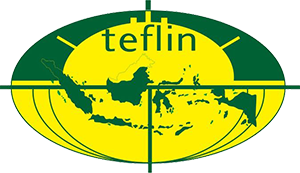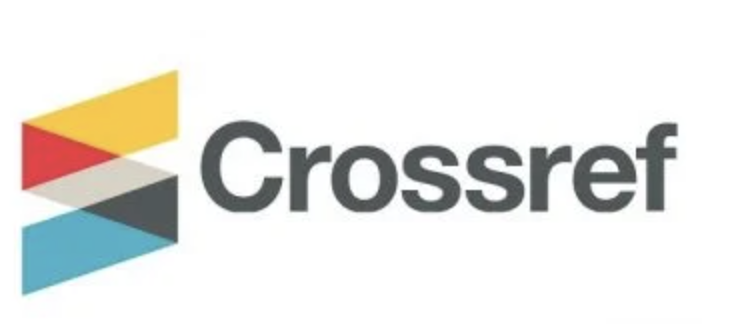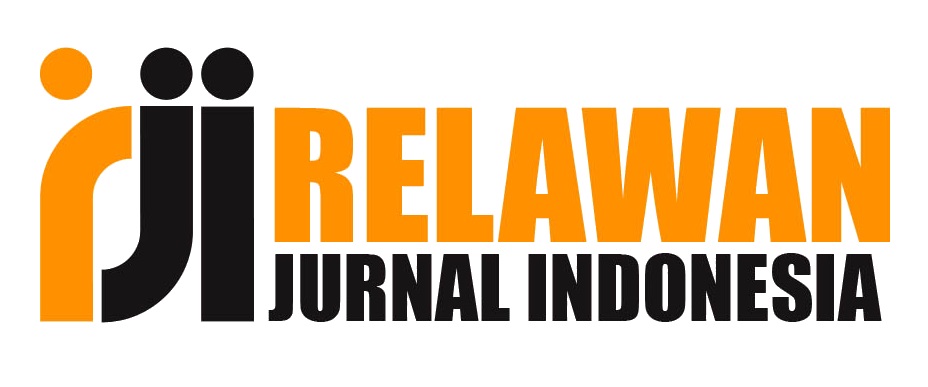Fostering English Language Skills’ Literacy Through Debate: Students' Views
DOI:
https://doi.org/10.63324/lec.1v.2i.11Keywords:
debate, literacy skills, strategy, students’ viewsAbstract
Education greatly influences the outcome of the students' learning process. One obstacle in education today concerns the literacy of students’ English language skills, namely listening, speaking, reading, and writing skills. Most students possess a low interest in enhancing the literacy of those four skills. The researchers believe that the strategy that can be adopted to enhance students’ literacy skills is the use of debate. So, the purpose of this research is to identify the students’ views of debate as a strategy to enhance English language skills’ literacy. Since the research used qualitative design, the researchers conducted semi-structured interviews, and used primary data and secondary data for data collection. The participants involved are debaters from different public and private universities in South Kalimantan. The result of the research showed that all participants agree that their literacy skills are influenced positively by debate and most participants view that debate can be used as a strategy to enhance the four skills’ literacy.
References
Alen et al. (2015). University students' perceptions of the use of academic debates as a teaching methodology. Journal of Hospitality, Leisure, Sport & Tourism Education, 16, 15-21.
Andewi, W. (2024). Effect of Zoom on English Speaking for EFL Students. LinguaEducare: Journal of English and Linguistic Studies, 1(1), 17–28. https://journal.ciptapustaka.com/index.php/LEC/article/view/3
Aprizani, Y., Islamiah, N., & Furyanto, F. A. (2018). Explicit grammar instructions to enhance students’ reading ability on cognitive aspect. Journal of Linguistics and Education, 8(1), 19-25.
Budesheim, T., & Lundquist, A. (2000). Consider the opposite: opening minds through in-class debates on course-related controversies. Teaching of Psychology, 6, 106–110.
Dundes, L. (2001). Small group debates: Fostering critical thinking in oral presentations with maximal class involvement. Teaching Sociology, 29, 237–243.
Furyanto, F. A., Putra, I., & Islamiah, N. (2021). Students’ perception on intercultural reading material for English learning. Edukatif: Jurnal Ilmu Pendidikan, 3(6), 5043-5049.
Harrel, M. C., & Bradley, M. A. (2009). Data collection methods: Semi structured interviews and focus groups. Santa Monica, Calif: RAND Corporation.
Hasbi, M. (2013). The attitudes of students from ESL and EFL countries to English. Register Journal, 6(1), 1-16. https://doi.org/10.18326/rgt.v6i1.1-16
Hasbi, M. (2017). Bringing pop-culture into classroom: Speaking 3’s Got Talent activity to enhance speaking skill of university students. Ta'dib, 19(2), 183-192.
Hasbi, M. (2017). Preparing digitally literate graduates through journal article reading-based activities. In: The 1st International Conference on English Language, Linguistics, and Literature (ICELLL 2017), 176-184. Institut Agama Islam Negeri Surakarta
Hasbi, M. (2021). Using Instagram for ELT Purposes. In Reflections on Pedagogical Practices During COVID-19 Pandemic (Pp. 121-130). Pena Persada.
Hasbi, M. (2024). The ways QuillBot enhances academic writing. In Useful AI Tools for English Teachers (pp. 29-40). Rizquna. http://e-repository.perpus.iainsalatiga.ac.id/21413
Hasbi, M., & Nursaputri, E. (2024). Using ELSA Speak Application as A Medium to Improve English Speaking Skills. IJLHE: International Journal of Language, Humanities, and Education , 7(2), 91–102.
Hasbi, M., & Nursaputri, E. (2024). Using ELSA Speak application as a medium to improve English speaking skills. IJLHE: International Journal of Language, Humanities, and Education, 7(1), 91–102. https://doi.org/10.52217/ijlhe.v7i1.1547
Hasbi, M., & Sari, P. A. (2021). Difficulties in teaching English distantly using Google Classroom. In Bogor English Student And Teacher (BEST) Conference, 2, 141-149. https://pkm.uika-bogor.ac.id/index.php/best/article/view/816
Hastomo, T., & Zulianti, H. (2021). EFL Students’ Perceptions on the Use of Google Meet in Online Learning During the Time of Coronavirus: A Literature Review. SELTICS, 4(2), 102–109. https://doi.org/10.46918/SELTICS.V4I2.916
Hornby, A. S. (1995). The Advanced Learner’s Dictionary of Current English. In advance learners’ dictionary of English.
Islamiah, N., & Nurhasanah, N. (2019). Speaking skill and picture series on EFL classroom. Journal of English Teaching, Applied Linguistics and Literatures (JETALL), 2(2), 77-83.
Islamiah, N., & Yudha, A. (2021). Students perception in using Youtube in learning English. Journal of English Teaching, Applied Linguistics and Literatures (JETALL), 4.
Istiara, F., & Hastomo, T. (2023). Exploring lecturers and administrative staffs’ strategies to hone EFL students’ digital literacy. JOALL (Journal of Applied Linguistics and Literature), 8(1), 151–172. https://doi.org/10.33369/JOALL.V8I1.25568
Istiara, F., Hastomo, T., & Indriyanta, W. A. (2023). A study of students’ engagement and students’ speaking skill: A correlational research. TEKNOSASTIK, 21(1), 1–7. https://doi.org/10.33365/TS.V21I1.2198
Karsen. (2008). Karakteristik Pembelajaran Student Centered Learning. Psychologymania. http://www.psychologymania.com.
Keller, T., Whittaker, J., & Burke, T. (2001). Student debates in policy courses: Promoting policy practice skills and knowledge through active learning. Journal of Social Work, 37, 343–355.
Leech, B. I. (2002). Asking questions: Techniques for semistructured interviews. PS: Political Science & Politics, 35, 665–668.
Mesly, O. (2015). Creating models in psychological research. Etats-Unis: Springer press.
Mohammad, Z. A., & Hasbi, M. (2021). Reading difficulties in English as a second language in Grade Five at a Saint Patrick's High School for Boys, Hyderabad--India. Arab World English Journal, 12(4), 521-535. https://dx.doi.org/10.24093/awej/vol12no4.34
Musselman, E. (2004). Using structured debate to achieve autonomous student discussion. The History Teacher, 37, 335–348.
Muthmainnah, N., & Hasbi, M. (2022). Can humanizing classroom meet EFL learners’ needs?. INSANIA: Jurnal Pemikiran Alternatif Kependidikan, 27(1), 53–64. https://doi.org/10.24090/insania.v27i1.6490
National Literacy Trust. (2017). What is Literacy?. Literacytrust https://literacytrust.org.uk/
Oktarin, I. B., & Hastomo, T. (2024). Utilizing Critical Discourse Analysis on Developing Students’ Digital Literacy Skills: An Action Research. Premise: Journal of English Education and Applied Linguistics, 13(1), 90–105. https://doi.org/10.24127/PJ.V13I1.8758
Oktarin, I. B., Saputri, M. E. E., Magdalena, B., Hastomo, T., & Maximilian, A. (2024). Leveraging ChatGPT to enhance students’ writing skills, engagement, and feedback literacy. Edelweiss Applied Science and Technology, 8(4), 2306–2319. https://doi.org/10.55214/25768484.v8i4.1600
Program for International Student Assessment. (2019). Tingkat Literasi Indonesia di Dunia Rendah, Rangking 62 Dari 70 Negara. https://perpustakaan.kemendagri.go.id/?p=4661.
Roy, A., & Macchiette, B. (2005). Debating the issues: A tool for augmenting critical thinking skills of marketing students. Journal of Marketing Education, 27, 264–276.
Sari, A. S. (2024). Building Gen Z-friendly classroom engagement. In How to Teach English to Gen Z Students (pp. 91-98). Rizquna.
Sari, A. S. (2024). Revolutionizing writing instruction: A closer look at Wordtune for EFL teachers. In Useful AI Tools for English Teachers (pp. 337-346). Rizquna.
Scannapieco, F. A. (1997). Formal debate: An active learning strategy. Journal of Dental Education, 61, 955–961.
Twinkl. (2021). Writing and Reading Literacy Skills. Twinkl. https://www.twinkl.co.id/
Utami, E. P. N., Islamiah, N., & Perdana, I. (2020). The implementation of direct method in teaching speaking at junior high school. Proceeding: Islamic University of Kalimantan, 1(1).
Vo, H. X., & Morris, R. L. (2006). Debate as a tool in teaching economics: Rationale, technique and some evidence. Journal of Education for Business, 81, 315–320.
Waziana, W., Andewi, W., Hastomo, T., & Hasbi, M. (2024). Students’ Perceptions about the Impact of AI Chatbots on their Vocabulary and Grammar in EFL Writing. Register Journal, 17(2). https://ejournal.uinsalatiga.ac.id/index.php/register/article/view/2292
Widodo, S. (2014). Psikologi Belajar. Jakarta: PT. Rineka Cipta.
Wu, X. (2003). Intrinsic Motivation and young language learners: The impact of the classroom environment. System, 31, 501–517.
Young, J. C., Rose, D. C., Mumby, H. S., Benitez‐Capistros, F., Derrick, C. J., Finch, T., Mukherjee, N. (2018). A methodological guide to using and reporting on interviews in conservation science research. Methods in Ecology and Evolution, 9(1), 10-19. doi:10.1111/2041-210X.12828
Zare, P, & Othman, M. (2015). Students’ perceptions toward using classroom debate to develop critical thinking and oral communication ability. Asian Social Science, 11(9) 158-17.















